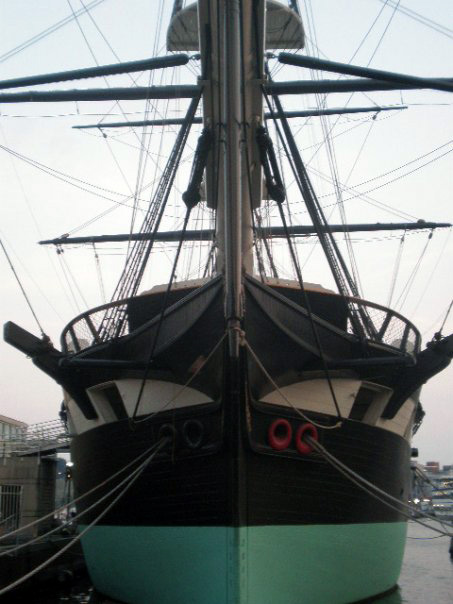Even though I'm technically 160 miles from the ocean, it's still salt water with unpredictable weather, and the inner harbor is regularly navigated by tankers, freighters, warships the length of two football fields, tugboats and world-cruising mega-yachts.
But there's more ordinary folks in boats than anything else; regular people with unremarkable boats who're out on the water just trying to mind their own business, and have a good time.
-- -- --
No one goes leaves the security of dry land intending to have an emergency at sea. But it seems you can turn the VHF radio to Channel 16 most any weekend, especially when storms or other hazardous conditions are forecast, and hear the badly frightened voices of boaters calling the Coast Guard for urgent assistance.
The vessels in distress aren't calling from the other side of the world: marine VHF radios have a very limited range under the best of conditions, which means the guy calling for help is close ... almost near enough to be in sight. But even then, help isn't automatically on its way.
There's lots of legitimate reasons why the Coast Guard can't be like the pizza delivery guys and respond to every call in 30 minutes or less: when the wind starts howling and conditions get rough, there's ususally more than one guy foundering in a boat who needs immediate assisstance.
In the past eight weeks I've heard broadcasts similar to, "Coast Guard calling any vessel, any vessel in the area, please respond to [the emergency] at coordinates X, Y Z" almost a half-dozen times.
The Coast Guard does not come on the air and announce, "Any vessel in the area please respond ... but only if you know the folks who're sinking and their skin's the same color as yours."
Nor does the Coast Guard ever say, "There's plenty of time, so discuss the situation and create an Action Committee. Feel free to have a vote and offer suggestions before responding. Don't worry about responding if you're uncomfortable getting involved, or not quite feeling up to responding ... and there's nothing selfish about turning off your radio and locking your doors if you'd rather not be disturbed."
Never.
By law, any vessel capable of responding is required to show up and offer assistance ... and the penalties for failure to provide assistance reflect the serious nature of life-threatening emergencies at sea.
The Federal government doesn't fudge or back down from the seriousness of rendering assistance to folks in danger of being lost.
Which is the long way of getting around to the point: Shouldn't churches be at least as serious about responding and rendering assistance to folks in danger of being lost?
VIOLATIONS OF INTERNATIONAL NAVIGATION RULES AND REGULATIONS (33 U.S.C. 1608)
§2304 Duty to provide assistance at sea
- A master or individual in charge of a vessel shall render assistance to any individual found at sea in danger of being lost, so far as the master or individual in charge can do so without serious danger to the master's or individual's vessel or individuals on board.
- A master or individual violating this section shall be fined not more than $1,000, imprisoned for not more than 2 years, or both.

